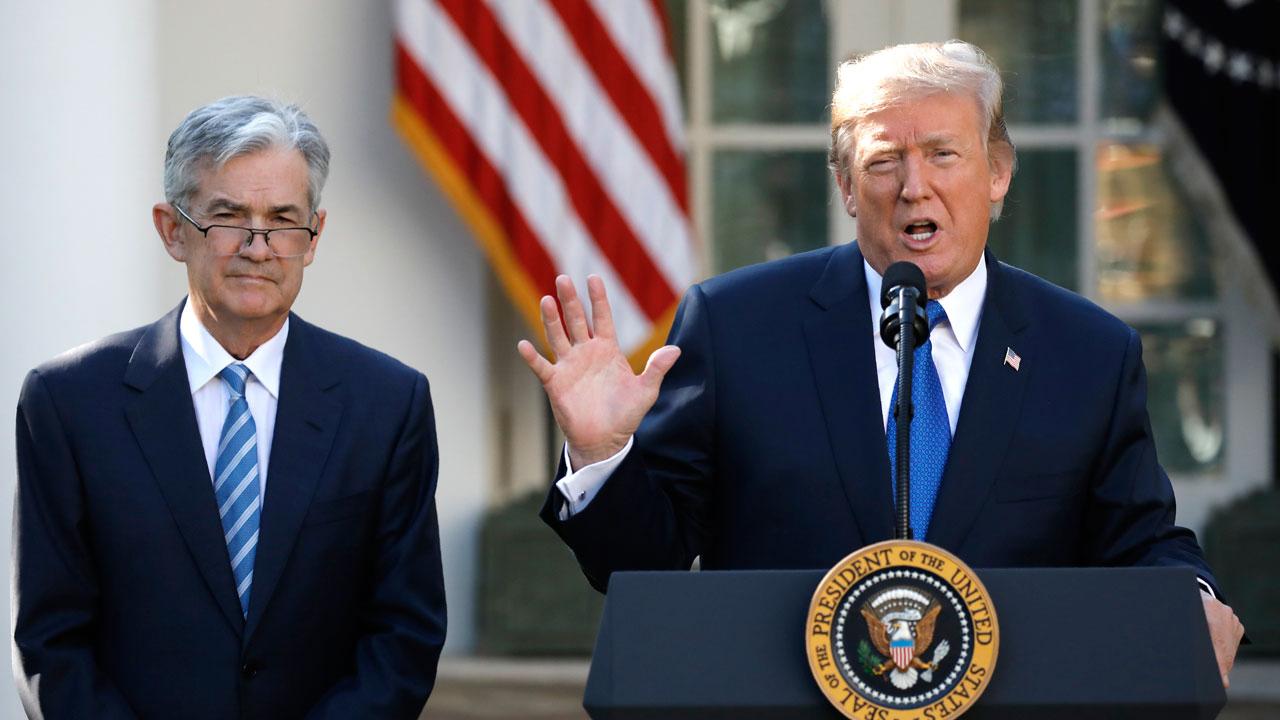Trump wants a weaker US dollar - here's why
President Trump, in the midst of a year-long trade battle with China, ratcheted up the pressure on Monday — the Treasury Department officially labeled Beijing as a currency manipulator, allegations that Trump has long heralded.
Now, the Treasury Department will work with the International Monetary Fund to try to undo the "unfair advantage created by China's latest actions."
Currently, the yuan is around an exchange rate higher than 7, compared to the U.S. dollar.
But it's not the first that Trump has criticized the monetary policy set by foreign governments. At the beginning of the month, the president accused China and the European Union of intentionally deflating the value of their currencies, even as the U.S. dollar remains relatively strong.
"China and Europe playing big currency manipulation game and pumping money into their system in order to compete with USA," he wrote. "We should MATCH, or continue being the dummies who sit back and politely watch as other countries continue to play their games - as they have for many years!"
Trump previously pushed back against the European Central Bank, claiming the European bloc was unfairly competing against the greenback by deflating the value of the euro.
“Mario Draghi just announced more stimulus could come, which immediately dropped the Euro against the Dollar, making it unfairly easier for them to compete against the USA,” Trump wrote in a tweet. “They have been getting away with this for years, along with China and others.”
At the time, Draghi said the ECB was ready to cut interest rates if the economy needed it. During a speech in Portugal, Draghi noted that “further cuts in policy rates...remain part of our tools.”
But why does the president think a weaker U.S. dollar is better for the economy?
Essentially, if the U.S. dollar is worth less relative to other currencies, foreign countries are likely to buy more American goods -- boosting things like U.S. manufacturing, while simultaneously helping to close the trade deficit. Trump frequently accused China of keeping its currency, the yuan, intentionally low to make exports cheaper, and therefore increase the trade imbalance.
And since Trump has taken office, the dollar has remained strong — much to his displeasure — thanks to protectionist trade policies, a big fiscal stimulus from the 2017 Tax Cuts and Jobs Act and monetary policy set by the Federal Reserve.
“I want a strong dollar, but I want a dollar that does great for our country, not a dollar that’s so strong that it makes it prohibitive for us to do business with other nations and take their business,” Trump said during a speech in March, before launching into criticism of Fed Chairman Jerome Powell.
“We have a gentleman that likes a very strong dollar in the Fed,” he added, referring to Powell.
CLICK HERE TO GET THE FOX BUSINESS APP
Although the Fed cut interest rates by 25 basis points during its July meeting, the dollar has remained strong.
